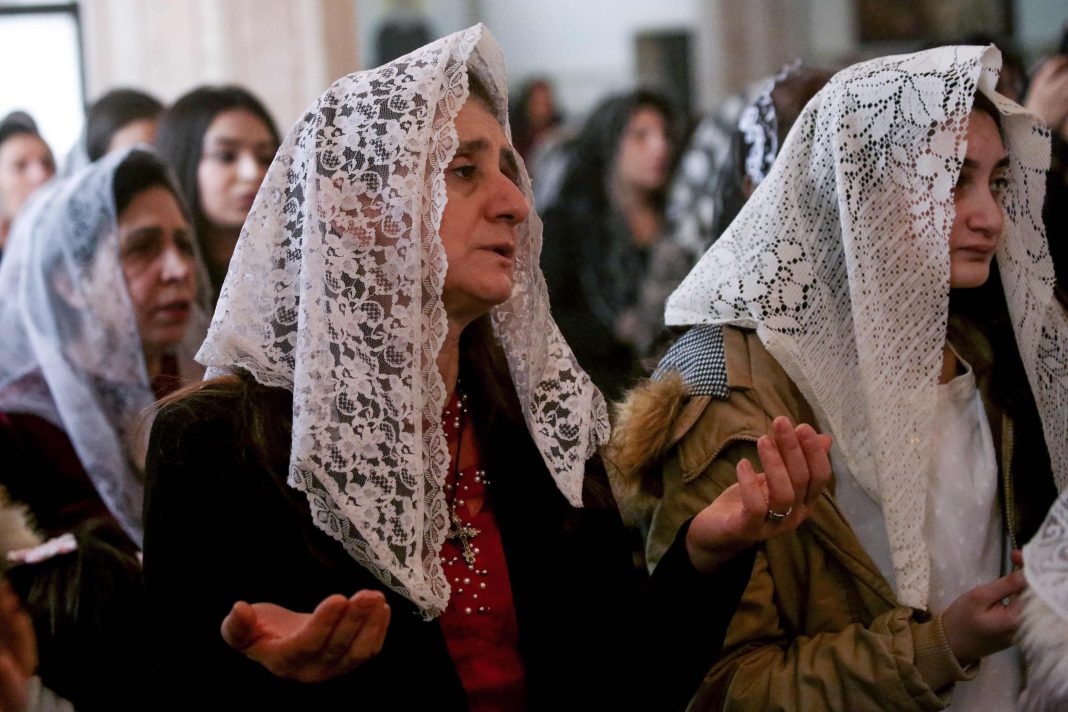Female Christian worshippers attend Christmas day mass at the Syriac Orthodox Church of Mar Dodo (Saint Dodo), in the northeastern Syrian Kurdish town of Derik, known as al-Malikiyah in Arabic, on December 25, 2017. / AFP PHOTO / Delil souleiman تقرير من موقع كايتستون يتناول وضعية اللاجئين المسيحيين السوريين والعراقيين المأساوي في مخيمات تركيا وتخلي دول الغرب عنهم طالبو اللجوء العراقيون والسوريون المسيحيون الذين تم التخلي عنهم أوزاي بولوت/ معهد جيتستون/ 21 نيسان/2023 Turkey: The Abandoned Iraqi and Syrian Christian Asylum Seekers Uzay Bulut/ Gatestone Institute/April 21, 2023 تركيا: طالبو اللجوء العراقيون والسوريون المسيحيون الذين تم التخلي عنهم أوزاي بولوت/ معهد جيتستون/ 21 نيسان/2023


